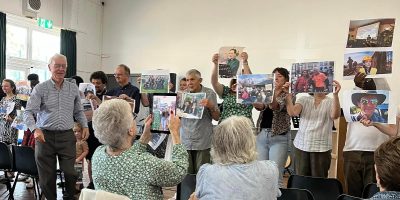According to Oxford University’s online dictionaries, the phrase to ‘read someone like a book’ means to be able to ‘understand someone’s thoughts and motives clearly or easily’. This saying took on an interesting twist for me today when I stumbled across the Human Library™ on the internet today. In this unusual library, you withdraw not the latest novels or timeless classics, but a person who will share their life story with you.
So where did this unusual twist on a library come from? It started in Denmark after the stabbing of a youth in 1993. Friends of this teenager, who fortunately survived, started a group called ‘Stop the Violence’. Asked to provide an activity for the Roskilde Festival, they brought together 75 human books, who could be taken out so that ‘readers’ could find out about the person behind the stereotypes and ask awkward questions – and hear possibly honest and challenging responses. Apparently before the first book was withdrawn, the hall was full of conversation between the books themselves as they listened to each other’s stories, the policeman sitting down with the graffiti writer, the politician with the youth activist and the football fan with the feminist. Since this first event, the Human Library has taken off with similar presentations taking place in more than 70 countries around the world. You can even go to their website and get a taste of some of the books you might get to read, the soldier with post-traumatic-stress-disorder, the convert to Islam, the brain-damaged, young single mother, the unemployed, the body mod extreme and the refugee amongst others.
Personally, I think this is a wonderful idea. We’re all too quick to judge others simply by the tags we put on them, failing to think beyond these simple labels to the complex human being beneath them with their mix of emotions, pressures and insights. Perhaps it’s important to remember that to others we are tags as well. Don’t forget, to some we are ‘Christians’. Colossians 1:19-20 describes God’s mission as reconciling the world to himself through Christ. I can’t help but feel that this Library could be part of that process, enabling people to come together and begin to appreciate other’s stories and the people behind them. Got me wondering how we can help others hear our story, but perhaps more importantly, how can we begin to hear the stories of those around us.










Leave a Reply